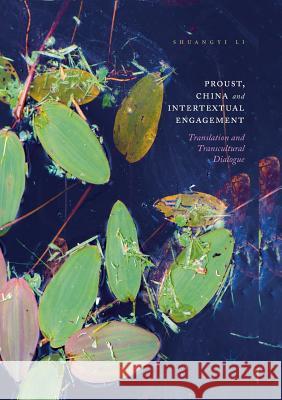Proust, China and Intertextual Engagement: Translation and Transcultural Dialogue » książka
topmenu
Proust, China and Intertextual Engagement: Translation and Transcultural Dialogue
ISBN-13: 9789811351426 / Angielski / Miękka / 2018 / 246 str.
Kategorie:
Kategorie BISAC:
Wydawca:
Palgrave MacMillan
Język:
Angielski
ISBN-13:
9789811351426
Rok wydania:
2018
Wydanie:
Softcover Repri
Ilość stron:
246
Waga:
0.32 kg
Wymiary:
21.01 x 14.81 x 1.4
Oprawa:
Miękka
Wolumenów:
01
Dodatkowe informacje:
Wydanie ilustrowane











